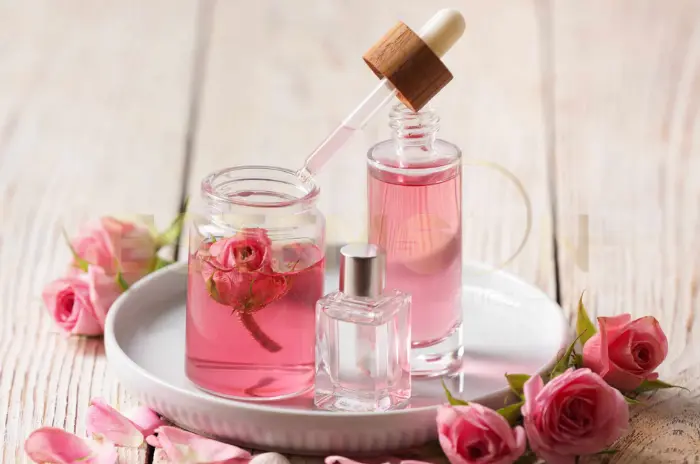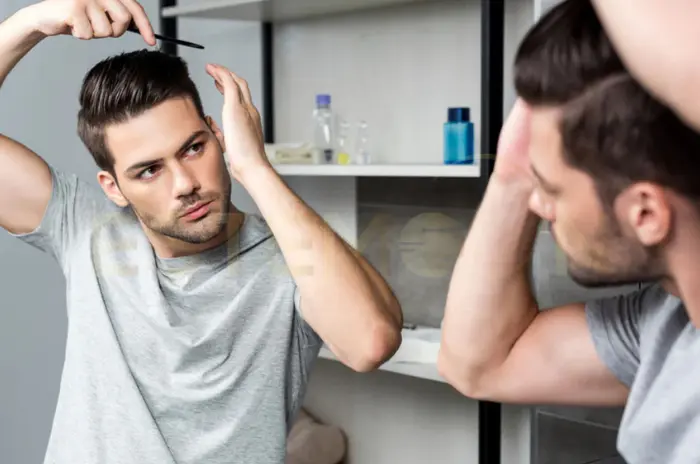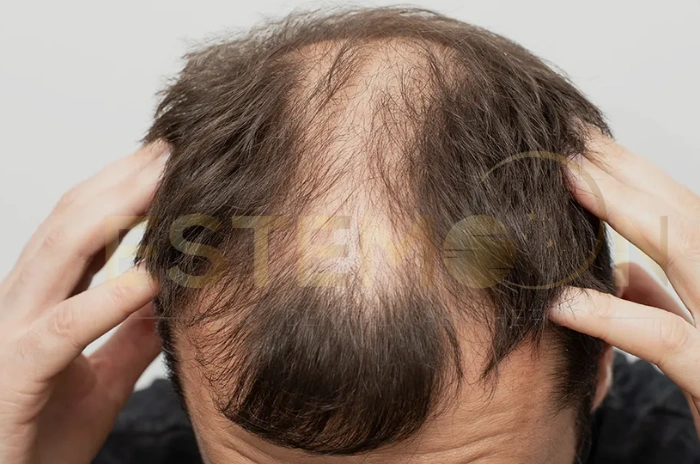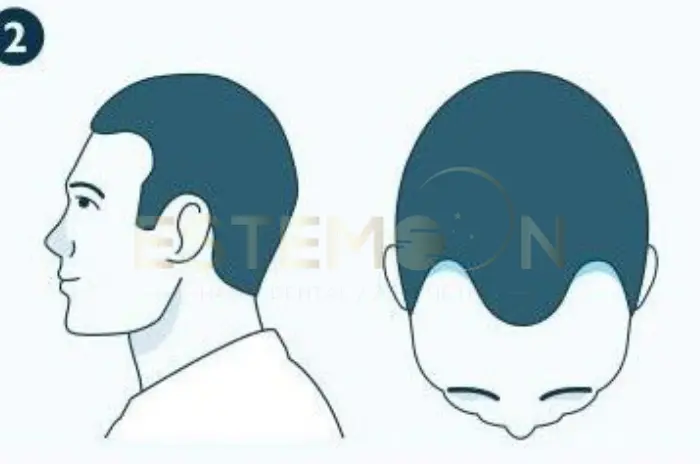Rose water for hair has been cherished for centuries as a natural beauty elixir, offering remarkable benefits for those seeking healthier, shinier locks. This fragrant floral water, derived from Rosa Damascena (also known as Damask roses), contains powerful nutrients and compounds that address common hair concerns from dryness to dandruff. Whether you’re struggling with an oily scalp, damaged strands, or simply want to enhance your hair’s natural shine, incorporating rose water into your hair care routine can transform your tresses naturally and effectively.
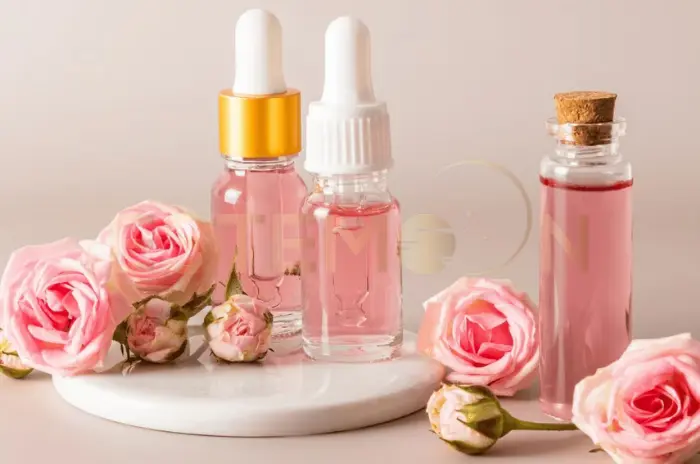
What is Rose Water and How It Helps Hair
Rose water is a byproduct of the steam distillation process used to extract essential oil from rose petals, particularly from Damask roses. The practice of creating rose water dates back over a thousand years, with historical records crediting Persian physician Avicenna with refining the distillation technique around the 10th century. The rose water origin story is deeply rooted in Middle Eastern and Persian cultures, where it was valued not only for its enchanting fragrance but also for its therapeutic properties.
When it comes to hair rinse applications, rose water works as a gentle yet effective treatment. It contains vitamins A, C, D, E, and B3, along with flavonoids and antioxidants that nourish hair follicles and strengthen strands from root to tip. The natural astringent properties help balance scalp pH levels, making it particularly beneficial for those dealing with excess sebum production. Additionally, the anti-inflammatory compounds found in rose water provide soothing scalp benefits, calming irritation and promoting a healthier environment for hair growth.
Natural Properties That Benefit Hair
The rose water nutrients penetrate the hair shaft, delivering moisture deep into each strand while sealing the cuticle layer. This dual action helps hydrates hair effectively without weighing it down. The natural sugars present in rose water act as humectants, attracting and retaining moisture in the hair, which is essential for maintaining elasticity and preventing breakage.
DIY Rose Water Shampoo for Hair Care
Creating your own rose water shampoo at home is simple, cost-effective, and allows you to customize the formula to your specific hair needs. This natural approach ensures you know exactly what ingredients are touching your scalp and hair, avoiding harsh chemicals found in many commercial products.
Basic Rose Water Shampoo Recipe
To make a gentle cleansing shampoo, combine 1/4 cup of liquid castile soap with 1/2 cup of pure rose water for hair treatment. Add 1 tablespoon of jojoba oil or sweet almond oil to provide extra moisture. Mix 5-7 drops of lavender or rosemary essential oil for added therapeutic benefits. Store this mixture in a clean bottle and shake well before each use. This formula gently cleanses while the rose water hair benefits work to maintain scalp health and enhance shine.
Enhanced Formula for Damaged Hair
For those looking to repair hair damage, create an enriched version by adding 1 tablespoon of raw honey and 1 teaspoon of vitamin E oil to the basic recipe. Honey acts as a natural humectant and helps restore moisture balance, while vitamin E provides antioxidant protection. Use this shampoo 2-3 times per week, massaging it gently into your scalp for 2-3 minutes before rinsing thoroughly with lukewarm water.
How Rose Water Helps Itchy Scalp
An itchy scalp can be incredibly uncomfortable and often signals underlying issues such as dryness, irritation, or sensitivity to hair products. Rose water for hair offers natural relief thanks to its anti-inflammatory and cooling properties that address the root causes of scalp discomfort.
The natural pH of rose water closely matches that of a healthy scalp (around 5.5), which helps restore balance when irritation occurs. When applied directly to the scalp, it provides immediate soothing relief while its astringent properties help regulate sebum production. This is particularly beneficial for those who experience itchiness due to an oily scalp – the rose water helps controls oily scalp without stripping away essential moisture.
Application Methods for Scalp Relief
For targeted relief, pour pure rose water into a spray bottle and mist directly onto your scalp, gently massaging with your fingertips. Allow it to sit for 15-20 minutes before rinsing or leaving it in as a leave-in treatment. Alternatively, soak a cotton pad in chilled rose water and dab it onto affected areas for instant cooling relief.
How Rose Water Benefits Hair Health
The comprehensive rose water benefits for hair extend far beyond surface-level improvements, working at the cellular level to promote overall hair health. Regular use can transform your hair’s texture, appearance, and strength over time.
Rose water strengthens hair follicles by improving blood circulation to the scalp when massaged in regularly. Enhanced circulation means better nutrient delivery to hair roots, which supports healthier growth patterns and reduces hair fall. The vitamins and antioxidants in rose water protect hair from environmental stressors like pollution and UV damage, preventing premature aging and color fading.
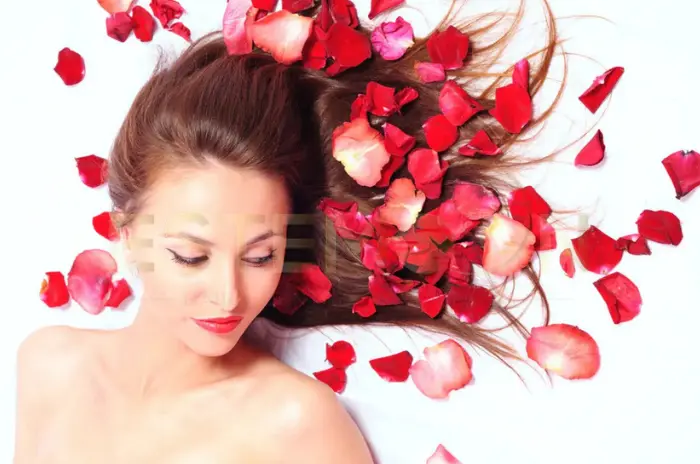
Moisture Retention and Damage Prevention
One of the most significant rose water hair benefits is its ability to lock in moisture without creating buildup. Unlike heavy oils or silicone-based products, rose water provides lightweight hydration that hydrates hair strands thoroughly. This moisture retention is crucial for preventing split ends and breakage, particularly in chemically treated or heat-styled hair. The natural conditioning properties help reduce frizz, leaving hair smooth and manageable even in humid conditions.
| Rose Water Benefit | How It Works | Expected Results |
|---|---|---|
| Moisture Balance | Humectant properties attract water | Softer, more manageable hair |
| Scalp Health | pH balancing and anti-inflammatory | Reduced irritation and flaking |
| Shine Enhancement | Smooths cuticle layer | Reflective, glossy appearance |
| Damage Repair | Protein and vitamin nourishment | Stronger, more resilient strands |
Fighting Dandruff with Rose Water
Dandruff treatment with rose water offers a gentle yet effective natural alternative to harsh chemical shampoos. The antifungal and antimicrobial properties of rose water directly combat Malassezia, the yeast-like fungus often responsible for dandruff formation.
Unlike medicated shampoos that can dry out the scalp and worsen flaking over time, rose water for hair addresses dandruff while maintaining the scalp’s natural moisture balance. The anti-inflammatory compounds reduce the itching and redness associated with seborrheic dermatitis, while the gentle cleansing action removes dead skin cells and product buildup without irritation.
Rose Water Dandruff Remedy
Create a powerful dandruff treatment by mixing equal parts rose water and apple cider vinegar (diluted with water). Apply this mixture to your scalp using a cotton ball, section by section, and leave it on for 30 minutes before shampooing. Use this treatment twice weekly for best results. Within 2-4 weeks, most people notice a significant reduction in flaking and itching.
How to Use Rose Water Shampoo and Conditioner
Incorporating rose water shampoo and conditioner into your routine requires understanding the proper application techniques to maximize the benefits of rose water for your specific hair type and concerns.
Proper Shampooing Technique
When using rose water shampoo, wet your hair thoroughly with lukewarm water first. Pour a small amount into your palm and emulsify it by rubbing your hands together. Apply the shampoo to your scalp rather than the lengths of your hair, using your fingertips to massage in circular motions for 2-3 minutes. This massage stimulates circulation and allows the rose water for hair growth properties to penetrate effectively.
Rose Water Conditioner Application
A rose water conditioner works best when applied to damp, not soaking wet, hair. After shampooing, gently squeeze excess water from your hair. Apply the conditioner from mid-length to the ends, avoiding the scalp area unless you have a very dry scalp. Leave it on for 3-5 minutes to allow the rose water nutrients to penetrate the hair shaft.
Best Ways to Apply Rose Water for Hair Care
Understanding how to use rose water for hair in various applications allows you to customize your treatment based on your hair’s specific needs and your lifestyle preferences.
As a Leave-In Spray for Shine
One of the simplest methods is creating a rose water for shiny hair spray. Fill a clean spray bottle with pure rose water and add 2-3 drops of argan oil or jojoba oil. Shake well before each use and mist over damp or dry hair, focusing on the mid-lengths and ends. This application provides instant hydration and creates a glossy finish without weighing hair down.
As a Deep Conditioning Hair Rinse
The rose water hair rinse method is particularly effective for those with dry, damaged, or color-treated hair. After your regular shampoo and conditioner routine, prepare a final rinse by mixing 2 cups of rose water with 1 cup of distilled water. Pour this mixture over your hair slowly, ensuring complete saturation from roots to tips. This technique helps rose water for oily scalp issues by balancing sebum production while adding moisture to the lengths.
Pre-Shampoo Treatment
For intensive repair, use rose water as a pre-shampoo treatment. Saturate dry hair completely with rose water, focusing on damaged areas and the scalp. Wrap your hair in a warm towel and leave it on for 30-45 minutes before shampooing as usual. This allows the rose water nutrients to penetrate deeply without being immediately washed away.
Rose Water for Hair Guide to Growth Shine and Repair – Frequently Asked Questions
How exactly does rose water soothe an itchy scalp?
Rose water soothes itchy scalp through its natural anti-inflammatory properties and pH-balancing effects, which reduce irritation, regulate sebum production, and provide immediate cooling relief when applied directly to affected areas.
Can rose water effectively help fight persistent dandruff?
Yes, rose water fights dandruff effectively through its antifungal and antimicrobial properties that combat the Malassezia fungus while maintaining scalp moisture balance, with most users seeing significant improvement within 2-4 weeks of regular application.
Should rose water be added to your shampoo or conditioner?
Rose water can be added to both shampoo and conditioner, though it’s most effective when mixed with shampoo for scalp benefits or used as a separate leave-in spray or final rinse for enhanced shine and hydration.
Does rose water repair damaged hair and enhance growth?
Rose water does repair hair damage by strengthening follicles, improving nutrient delivery through enhanced circulation, and providing vitamins and antioxidants that protect against environmental stressors while supporting healthier rose water for hair growth patterns over time.
Follow us on social media for updates, tips, and patient success stories:

